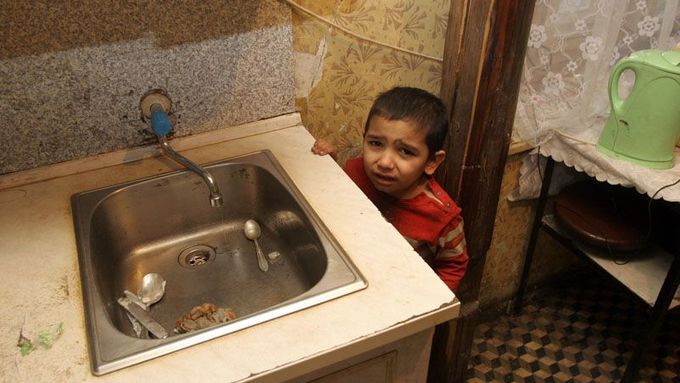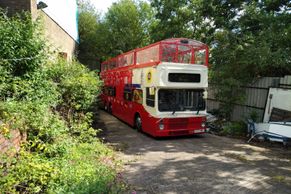
Brno - One run-down house next to another. The original colours of the buildings' facades are beyond recognition, gates leading into yards full of garbage are impossible to close in some places or are completely non-existent.
There is no trace of flowers, and the nearest children's playground is so far that the kids have no choice but to play among nearby cars.
This is how several streets in Husovice, a district in Brno, currently look. It only takes a five-minute tram ride to get to the city centre or to neighbouring districts where polished Škoda Octavias are parked in front of repaired villas among blossoming trees.
The situation in many Czech cities is similar: Right next to "respectable" streets, real ghettos are emerging or have been present for years.
But the situation may change soon. Brussels has earmarked EUR 193 million for Czech municipalities with populations of at least 20,000 to renew "problematic residential areas", meaning prefab housing estates, streets and districts inhabited by people sidelined by society.
The money will go above all to Romani ghettos. Cities, non-profit organisations and social workers agree the money will help, but they also voice a warning: It will not be enough to repair the houses and replace the pavement. It is also necessary to invest in community outreach work and education.
Bratislavská in Brno, Wolkerova in Cheb
Cejl, Francouzská, Körnerova, Bratislavská. For people in Brno, these streets are not exactly good addresses. They call them (only half jokingly) the Brno Bronx. The shabby houses in streets full of pawn shops and non-stop bars are mostly inhabited by socially disadvantaged Romani families.
This may change in a few years. The City Hall is hoping to raise dozens of millions of crowns through a so-called Integrated Municipal Development Plan.
The money will help renew public areas and repair blocks of flats in the problematic parts of the city to bring them to the same level as neighbouring localities.
The western Bohemian city of Cheb is planning to repair Wolkerova Street, inhabited by about fifty Romani families. "The blocks of flats are in the hands of private owners, but they may draw these subsidies too," says Tomáš Ivanič, spokesman for the Cheb City Hall.
"This is a rare opportunity. We have already spread the word among all cities taking part in our agency's pilot project," said Marek Podlaha, head of the government's Agency for Social Integration in Romani Communities.
Besides Brno and Cheb, successful applicants may include Ústí nad Labem, Most, Ostrava, Břeclav and many other cities, regardless of whether they are taking part in the pilot project.
Almost derelict houses can get money for foundation repairs, hydro-insulation, thermal insulation, and window replacement. City halls can also use the money to repair infrastructure, build playgrounds, sports grounds, and recreational areas.
This is the only opportunity to get so much money for housing repairs in socially marginalised areas in the Czech Republic.
To build and ignore? No way
Experts on Romani issues as well as the cities are literally waiting for the cash. Up to now, they could usually get money for "soft" projects - for education and outreach work.
In the locality selected by Brno, there is not a single children's playground or sports field. "The kids must play on the street," says Miroslav Zima, director of Drom, a Roma centre located in Bratislavská Street.
He adds that the money for the Brno Bronx revamp will certainly help, but it must come hand in hand with activities that will teach its inhabitants to treat the repaired property well.
"You cannot build something for a huge amount of money and then stop taking care of it. This will be a challenge for social workers," says Zima.
Marek Podlaha agrees. "Along with tackling the housing issue, we must also focus on education and employment. We must start at once, before the repairs get under way," Podlaha says.
"We can draw the money from EU funds until 2015. Naturally, we will not resolve the problems we have been grappling with for generations by then. It will be a sort of a push for the Roma," said Brno deputy mayor Oliver Pospíšil.
Adapted and republished by the Prague Daily Monitor







